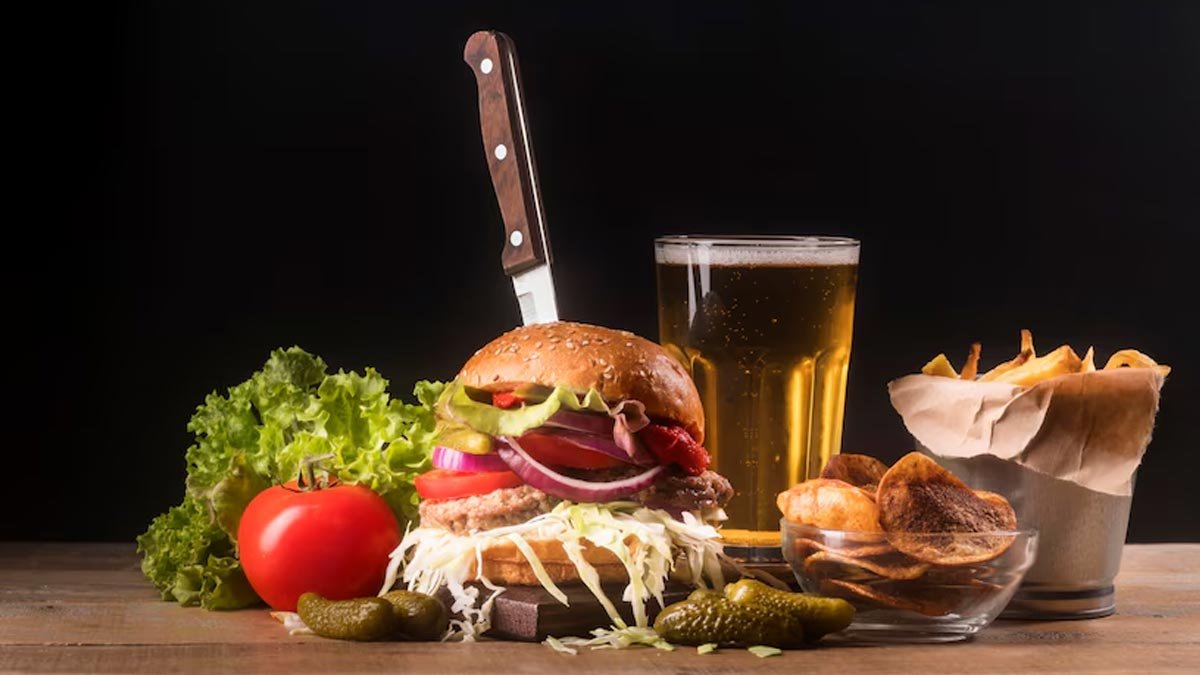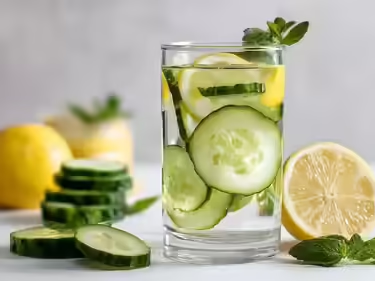Certain foods and dietary habits have been linked to an increased risk of cancer, particularly when consumed excessively or improperly.
Here are some categories to watch out for:
1. Processed Meats
- Examples: Bacon, hot dogs, sausages, salami.
- Why? These are often cured, smoked, or treated with preservatives like nitrates and nitrites, which can form carcinogenic compounds during cooking.
2. Red Meat (Excessive Consumption)
- Examples: Beef, pork, lamb.
- Why? High intake, especially when grilled or charred, can lead to the formation of heterocyclic amines (HCAs) and polycyclic aromatic hydrocarbons (PAHs), both of which are linked to cancer.
3. Deep-Fried and Overly Processed Foods
- Examples: French fries, potato chips, fried chicken.
- Why? Cooking starchy foods at high temperatures produces acrylamide, a compound linked to cancer.
4. Sugary Beverages and Foods
- Examples: Sodas, candies, baked goods with high sugar content.
- Why? High sugar intake can lead to obesity, a significant risk factor for several cancers.
5. Alcohol (Excessive Use)
- Why? Alcohol consumption is linked to cancers of the mouth, throat, esophagus, liver, breast, and colon. The risk increases with quantity and frequency.
6. Highly Processed Foods
- Examples: Packaged snacks, instant noodles, ready-to-eat meals.
- Why? They often contain unhealthy fats, artificial additives, and preservatives, which may increase cancer risk.
7. Charred or Burnt Foods
- Examples: Barbecued or grilled foods that are overly burnt.
- Why? Charred foods can contain HCAs and PAHs, both of which are carcinogenic.
8. Salt-Preserved Foods
- Examples: Pickled vegetables, salted fish, and certain processed snacks.
- Why? High salt intake can increase the risk of stomach cancer by damaging the stomach lining.
9. Artificial Sweeteners and Additives (Potential Risk)
- Examples: Aspartame, saccharin (in certain contexts).
- Why? While most studies are inconclusive, some artificial additives are under scrutiny for potential links to cancer.
Tips for a Cancer-Preventive Diet:
- Focus on Whole Foods: Incorporate fresh fruits, vegetables, whole grains, nuts, and seeds.
- Limit High-Risk Cooking Methods: Favor steaming, baking, or boiling over frying or grilling.
- Choose Lean Proteins: Opt for fish, poultry, or plant-based proteins like beans and lentils.
- Stay Hydrated: Drink plenty of water and limit sugary or alcoholic beverages.







